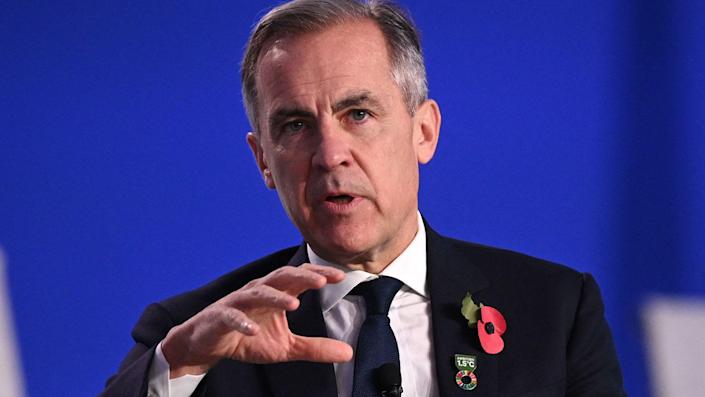If you are a globalist — someone who believes humanity can best thrive with the abundant flow of goods, ideas and people across international borders — it has been a dark decade. And getting darker.
Driving the news: The list of affronts to a vision of liberal internationalism keeps getting longer. Xi and Putin. Brexit and Trump. Bolsonaro and Erdoğan and Orbán. Pandemic-closed borders, and now war in Eastern Europe.
Stay on top of the latest market trends and economic insights with Axios Markets. Subscribe for free
Why it matters: As countries feel a greater need to become more self-reliant, that means tossing out some of the benefits of interdependence — which could shape the world economy of the 2020s and beyond.
It is the “corrosion of globalization” as Adam Posen, president of the Peterson Institute for International Economics, puts it in a humdinger of an essay in Foreign Affairs.
-
“It now seems likely that the world economy really will split into blocs,” Posen writes, “each attempting to insulate itself from and then diminish the influence of the other.”
-
“With less economic interconnectedness, the world will see lower trend growth and less innovation,” he continues. “Domestic incumbent companies and industries will have more power to demand special protections. Altogether, the real returns on investments made by households and corporations will go down.”
Flashback: For years now, companies with complex multinational supply chains have grappled with unexpected costs. First there were the Trump tariffs, applied to different lists of products and import sources with little warning.
-
The pandemic, with its lockdowns and extreme travel restrictions, were even more disruptive, as the continued shortages at car dealers and on U.S. store shelves confirm.
-
Now, the price of oil and agricultural commodities has soared, and with Russia cut off from the world economy, there is the prospect of sustained shortages of crucial industrial materials including nickel, palladium and neon.
This is forcing businesses to shift from an emphasis on “just-in-time” to “just-in-case,” as Atlanta Fed president Raphael Bostic said in a speech this week. That is, they are increasingly willing to sacrifice efficiency for reliability.
Leading investors are coming to the same view. BlackRock chief Larry Fink writes in a new letter to shareholders that the Ukraine war “has put an end to the globalization” experienced in recent decades.
-
Howard Marks, of Oaktree Capital, writes in a new investor letter that this era of globalization has been a boon for global GDP, but that the swing away from it may “improve importers’ security,” and “increase the competitiveness of onshore producers and the number of domestic manufacturing jobs.”
The bottom line: The global economy of the 2020s is looking quite different from the world of the previous three decades — in ways that we’re only starting to understand but could have profound implications for macroeconomic policy.


Mark Carney, former Bank of England governor. Photo: Daniel Leal/Getty Images
For all the difficulties that faced economic policy in the 2010s, there was a saving grace. The twin problems that faced the U.S. and other advanced nations — too-high unemployment and too-low inflation — had the same solution: More stimulus.
-
But that era might be over. Mark Carney, former governor of both the Bank of England and the Bank of Canada argues that forces including the breakdown of globalization mean new, less appealing, tradeoffs.
State of play: If Carney is right, interest rates and inflation will be persistently higher in the decade ahead than we’re used to — and current policymakers haven’t adjusted yet.
The big picture: When demand collapses in the economy — say, because a financial crisis rips through — it tends to bring down both inflation and employment at the same time. As a result, stimulus helps on both frontiers at once.
-
Indeed, according to the dominant central bank models, the same policies should generate both full employment and steady 2% inflation.
-
Economists call this “the divine coincidence.”
But when the problem is a shock to the supply side of the economy — say, a pandemic messes with global supply chains — more stimulus meant to help put people to work tends to also worsen inflation.
-
That’s the world we’re living in right now. “Just as globalization was deflationary, its unwinding will be inflationary,” Carney said in a speech at the National Association for Business Economics this week.
Climate adaptation over the coming decade will also influence inflation and interest rates, he argued.
-
Investment in energy infrastructure will need to rise in the neighborhood of two percentage points of global GDP per year through 2050 to prevent the most severe implications of climate change, according to IEA estimates Carney cited.
-
This will increase inflation in the near-term, he argued, and increase the long-term neutral interest rate.
The bottom line: “The economic environment is now very different from that which reigned since the global financial crisis,” Carney said. “Deficient demand and divine coincidence are out, trade-off inducing supply shocks and malign coincidence are in.”
More from Axios: Sign up to get the latest market trends with Axios Markets. Subscribe for free




